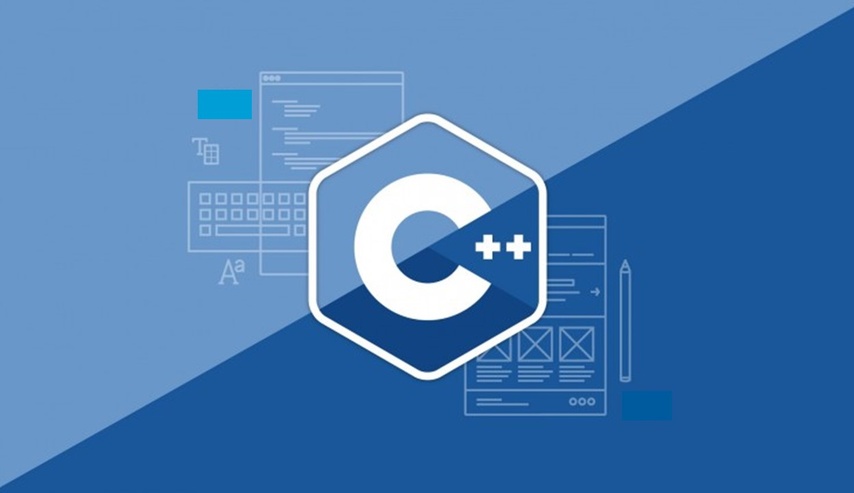Introduction To C++

About Course
C++ Programming Course Structure
Module 1: Introduction to C++ Programming
-
Overview of C++
-
History of C++
-
Features of C++
-
Differences between C and C++
-
Applications of C++
-
-
Setting Up the Environment
-
Installing a C++ compiler (e.g., GCC, Clang, MSVC)
-
Setting up an IDE (e.g., Visual Studio, Code::Blocks, CLion)
-
Writing and running your first C++ program
-
-
Basic Syntax and Structure
-
Structure of a C++ program
-
Comments, identifiers, and keywords
-
Data types (primitive, derived, and user-defined)
-
Variables and constants
-
Input and output (cin, cout)
-
Module 2: Control Structures and Functions
-
Control Structures
-
Conditional statements (if, if-else, nested if, switch-case)
-
Looping structures (for, while, do-while)
-
Break, continue, and goto statements
-
-
Functions
-
Defining and calling functions
-
Function prototypes
-
Parameters and arguments
-
Return values
-
Function overloading
-
Inline functions
-
-
Scope and Storage Classes
-
Local vs global variables
-
Storage classes (auto, register, static, extern)
-
Module 3: Arrays, Strings, and Pointers
-
Arrays
-
One-dimensional arrays
-
Multi-dimensional arrays
-
Array manipulation and traversal
-
-
Strings
-
C-style strings (character arrays)
-
String manipulation functions (strlen, strcpy, strcat, etc.)
-
Introduction to
std::stringin C++
-
-
Pointers
-
Pointer basics
-
Pointer arithmetic
-
Pointers and arrays
-
Pointers to pointers
-
Dynamic memory allocation (new, delete)
-
Module 4: Object-Oriented Programming (OOP) in C++
-
Introduction to OOP
-
Principles of OOP (Encapsulation, Inheritance, Polymorphism, Abstraction)
-
Classes and objects
-
Access specifiers (public, private, protected)
-
-
Constructors and Destructors
-
Default and parameterized constructors
-
Copy constructors
-
Destructors
-
-
Inheritance
-
Base and derived classes
-
Types of inheritance (single, multiple, hierarchical, multilevel, hybrid)
-
Function overriding
-
-
Polymorphism
-
Function overloading
-
Operator overloading
-
Virtual functions and runtime polymorphism
-
-
Advanced OOP Concepts
-
Friend functions and classes
-
Static members
-
Abstract classes and interfaces
-
Module 5: Advanced C++ Concepts
-
Templates
-
Function templates
-
Class templates
-
Template specialization
-
-
Standard Template Library (STL)
-
Containers (vector, list, map, set, etc.)
-
Iterators
-
Algorithms (sorting, searching, etc.)
-
Functors and lambda expressions
-
-
Exception Handling
-
Try, catch, and throw
-
Custom exceptions
-
Exception safety and best practices
-
-
File Handling
-
Reading and writing files
-
File streams (ifstream, ofstream, fstream)
-
Binary file operations
-
Module 6: Advanced Topics
-
Move Semantics and Rvalue References
-
Lvalue vs Rvalue
-
Move constructors and move assignment operators
-
std::move
-
-
Smart Pointers
-
std::unique_ptr -
std::shared_ptr -
std::weak_ptr
-
-
Multithreading and Concurrency
-
Introduction to threads
-
Thread synchronization (mutex, locks, condition variables)
-
Asynchronous programming with
std::asyncandstd::future
-
-
C++11/14/17/20 Features
-
Auto keyword
-
Range-based for loops
-
Lambda expressions
-
Constexpr and nullptr
-
Structured bindings
-
Concepts and modules (C++20)
-
Module 7: Real-World Applications and Projects
-
Project-Based Learning
-
Building a console-based application (e.g., library management system, bank system)
-
Developing a game using C++ (e.g., Tic-Tac-Toe, Snake game)
-
Creating a GUI application using frameworks like Qt or SFML
-
-
Best Practices
-
Code organization and readability
-
Debugging and profiling
-
Version control with Git
-
Writing efficient and optimized code
-
Module 8: Assessments and Certification
-
Quizzes and Assignments
-
Weekly quizzes to test understanding
-
Coding assignments to reinforce concepts
-
-
Final Project
-
A comprehensive project demonstrating mastery of C++
-
-
Certification Exam
-
A final exam covering all course material
-
Certification of completion for successful students
-
Student Ratings & Reviews
